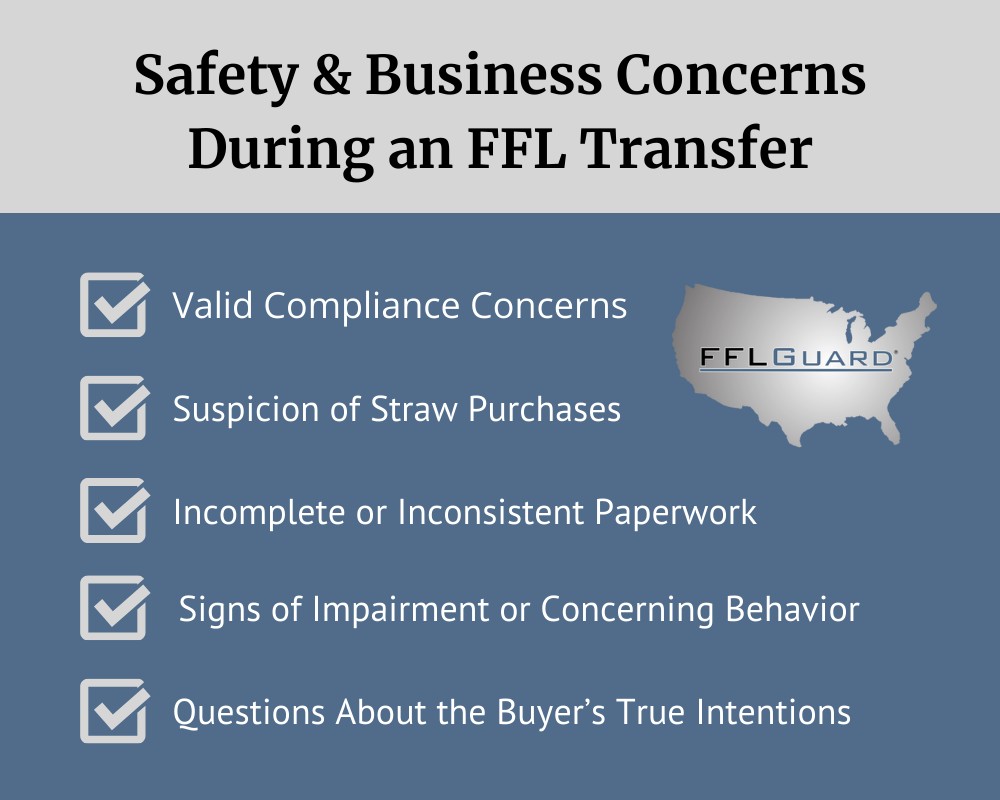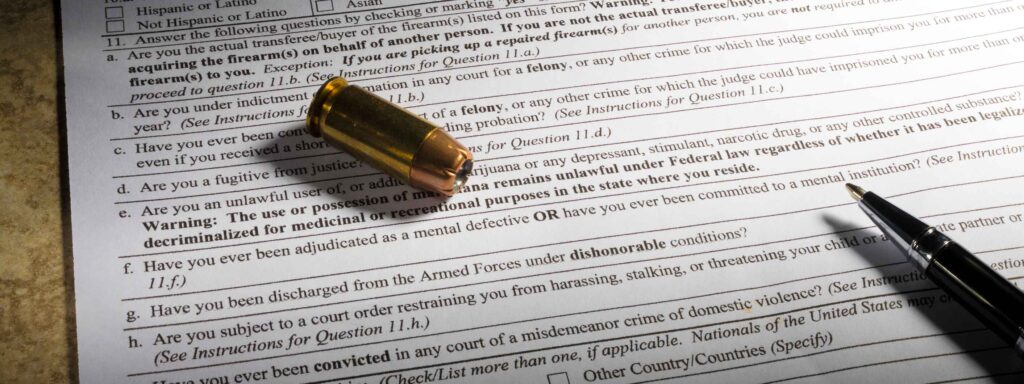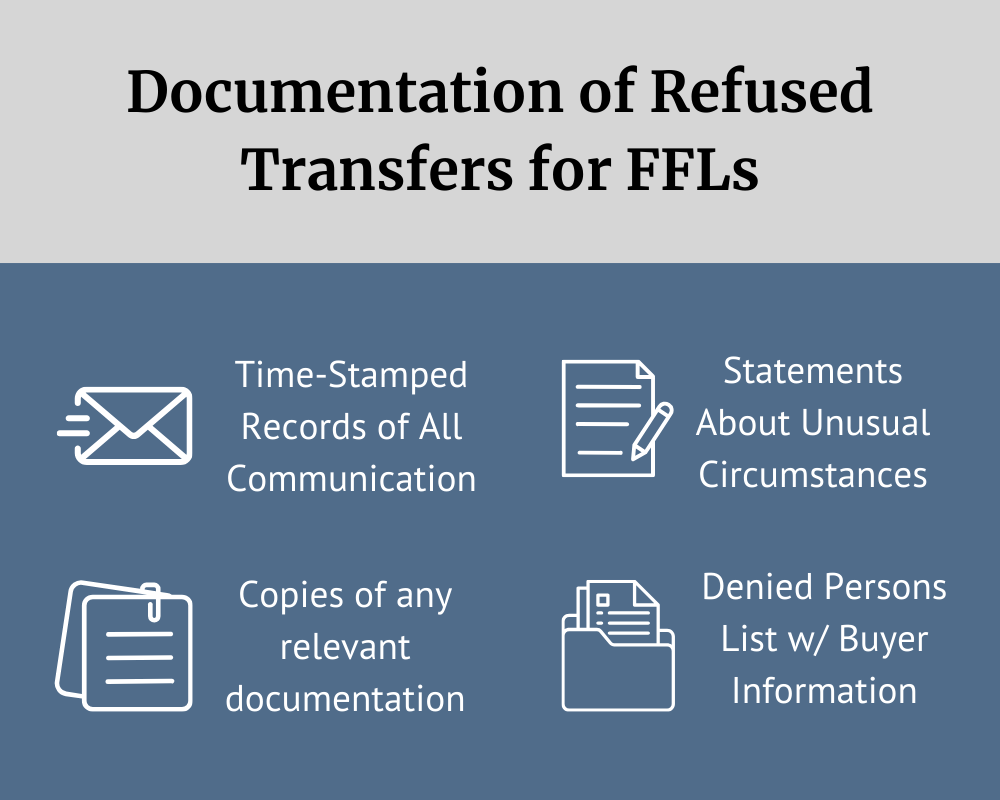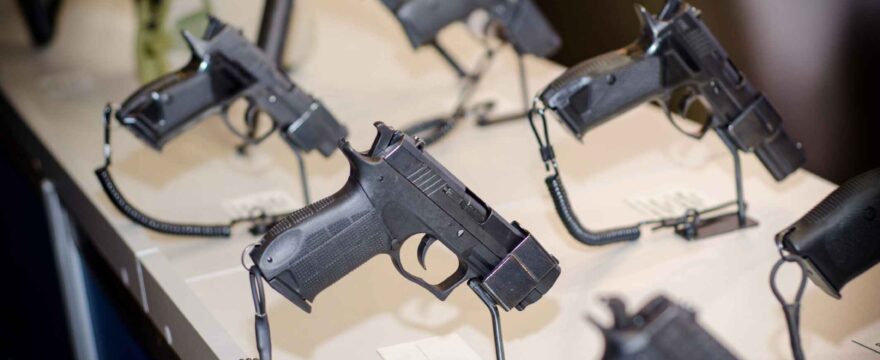The Short Answer: Federal Firearms Licensees (FFLs) have the legal right to refuse firearm transfers at their discretion, at any time, for any reason, without advising the buyer/transferee why. This right exists to ensure compliance with federal regulations and maintain the integrity of the transfer process.
As federally licensed firearms dealers, FFLs play a crucial role in the legal transfer of firearms in the United States through proper firearm transfer procedures. Their authority to refuse transfers stems from both federal law and their responsibility to ensure all transactions follow regulations set forth by the Bureau of Alcohol, Tobacco, Firearms and Explosives (ATF). FFLs must exercise sound judgment when conducting FFL transfers, as they are legally accountable for ensuring all transactions meet federal and state law. This responsibility is fundamental to maintaining the integrity of firearm commerce, ensuring public safety, and preventing illegal transfers.
Understanding these rights and responsibilities is essential for both firearm dealers and potential firearm purchasers to ensure smooth, compliant transfers while maintaining public safety. This comprehensive guide explains how FFLs can legally refuse firearm transfers and handle difficult transactions professionally. It covers the legal basis for refusal rights, common compliance reasons for denying transfers, and best practices for communicating refusals effectively to customers.
The Basics of FFL Transfers
An FFL transfer is the legally required process for transferring a firearm from one party to another through a Federal Firearms License holder, who conducts the mandatory background check and maintains the proper federal and state documentation of the transaction. Keep in mind that under federal regulations, a transfer does not require a monetary exchange. A transfer is simply the transfer of control or dominion over the firearm.
If an FFL transfer is refused, it usually means the potential buyer has failed to satisfy one or more of the legal requirements for purchasing a firearm, which could be due a myriad of reasons, such as a failed background check, incomplete paperwork, insufficient identification, or the firearm being illegal where the buyer resides. This refusal is legally binding, and the transaction cannot proceed, ensuring that firearms don’t end up in the hands of a prohibited person forbidden from possessing them under federal or state law.
Legal Basis for Transfer Refusal
Federal Law and FFL Rights
FFL transfers operate under a comprehensive framework of federal firearms laws and local regulations.The Gun Control Act of 1968, along with subsequent legislation, establishes that FFLs have significant discretion in conducting transfers. The law recognizes that FFLs, as licensed firearms professionals, must exercise sound judgment in firearms transactions to maintain public safety and regulatory compliance.
The constitutional basis for transfer refusal stems from both property rights and business autonomy principles. FFLs, as private businesses, maintain the fundamental right to refuse service, provided such refusal doesn’t violate specific anti-discrimination laws. The ATF explicitly acknowledges this discretionary authority, allowing FFLs to decline transfers when they have reasonable cause to question the transaction’s legitimacy or safety. Additionally, there is no requirement the FFL notify the denied party their reason for such action.

Protected Classes vs. Discretionary Refusal
While FFLs have broad discretion in refusing transfers, this authority isn’t totally unlimited. Federal civil rights laws prohibit discrimination based on protected characteristics such as race, color, religion, national origin, sex, or disability. However, FFLs can and should refuse transfers for legitimate business or safety concerns, including, but not limited to:
- Suspicion of straw purchases
- Signs of impairment or concerning behavior
- Questions about the buyer’s true intentions
- Incomplete or inconsistent paperwork
- Valid compliance concerns
When refusing a transfer, FFLs should maintain thorough documentation of the transaction, which may include the reason for refusal, as this creates an audit trail demonstrating reasonable business judgment. Any documentation maintained should be objective, fact-based, and focused on specific behaviors or compliance issues rather than personal characteristics. Such records protect the FFL if their refusal decision is later questioned or challenged. For the most part, this information should be retained with the FFL’s business records.
Common Reasons for Transfer Refusal
Compliance Concerns
FFLs have both the right and responsibility to refuse firearms transfers when compliance issues arise. Common compliance-related reasons for transfer refusal include suspicion of false statements on ATF Form 4473, incomplete or improperly filled out paperwork, inability for the buyer/transferee to complete ATF Form 4473 without assistance, or when the potential transferee fails the required background check. FFLs must exercise due diligence in verifying the accuracy and completeness of all transfer documentation to maintain their license and comply with federal and state regulations.
Safety and Business Considerations
Beyond strict regulatory compliance, FFLs may refuse transfers based on reasonable safety concerns or business policies. In addition to preventing straw purchases, where someone attempts to acquire a firearm on behalf of another person, FFLs also must make sure that the person they’re selling the firearm to is not showing signs of concerning behavior. They must be vigilant for warning signs, like the buyer meeting any of the following descriptions:
- Seems unfamiliar with the firearm they’re attempting to acquire
- Appears intoxicated or under the influence of a substance, legally prescribed or not
- Has identification documents or address(es) that don’t appear consistent
- Makes threatening or violent statements
- Is accompanied with a companion who is directing the purchase
Many FFLs also implement business-specific policies regarding acceptable forms of identification, payment methods, or waiting periods that, if not met, constitute grounds for refusal. An FFL may always set the scope of their operations, such as:
- Refusing to transact firearms with residents of specific states or territories
- Conducting a background check even if a NICS-approved alternative permit is supplied
- Requiring recertification of ATF Form 4473, even if the transfer occurs on the same day the buyer originally certified.
When refusing a transfer, FFLs should document the nontransfer by completing ATF Form 4473, as appropriate, and maintain consistent application of their policies to protect themselves from potential liability while fulfilling their role as responsible firearms dealers. The decision to refuse a transfer ultimately rests with the FFL’s judgment in upholding public safety and regulatory compliance.

How to Communicate a Transfer Refusal Effectively
Professional Communication
When an FFL must refuse a firearm transfer, clear and professional communication is essential. Going through the following steps can help go through the process clearly and effectively:
State
Begin by stating the transfer refusal in a direct but respectful manner. If applicable, provide the buyer/transferee with the NICS Resolution Card along with the NICS Transaction Number (NTN) for his/her transaction. Keep in mind, FFLs may not coach a buyer regarding his/her responses on ATF Form 4473 or like documents. Therefore, you may refer the buyer to the document instructions for him/her to determine why s/he was denied, if the denial was not due to a background check response.
In the case of a denied background check, many buyers want to know why it was denied, assuming the FFL was provided with a reason. In such cases, the FFL may state to the buyer only a response is provided to an FFL; there is no reason for that response provided by the agency. He or she will then have to contact the background check agency for more information.
Document
FFLs should maintain thorough documentation of the transaction, which may include the reason for refusal, as this creates an audit trail demonstrating reasonable business judgment. Any documentation maintained should be objective, fact-based, and focused on specific behaviors or compliance issues rather than personal characteristics. Such records protect the FFL if their refusal decision is later questioned or challenged.
For the most part, this information should be retained with the FFL’s business records. Only attach required documents or forms to ATF Form 4473 (e.g.documentation of the nonimmigrant prohibition exception and/or multiple sales forms).
Any ATF Forms 4473 where a transfer does NOT occur, for any reason, must be filed separately from Forms where a transfer does occur.
Offer a Solution
When possible, provide resources to the customer. This might include:
- A NICS Resolution Card or state background check agency contact information
- Recommending they resolve any state or NICS background check issues
- Stating no exceptions are granted to Company policies and that the decision is out of the employee’s hands
- Suggesting the prospective buyer return once she/he has resolved any issues
This approach maintains professionalism while demonstrating your commitment to lawful firearms transfers.

Legal Protections
FFLs have significant legal protection when refusing transfers, provided the refusal is based on legitimate compliance concerns or regulatory requirements. The law recognizes that FFL dealers must exercise discretion and err on the side of caution when conducting transfers. To maximize these protections, in addition to completing and maintaining ATF Form 4473 and associated federal or state forms prescribed by regulations, FFL’s should maintain detailed records of every refused transfer in his/her business records, which might include:
- Factual statement of the specific reason for refusal, if necessary
- Copies of any relevant documentation, forms, or video
- Factual statements about any unusual circumstances or behavioral concerns
- Time-stamped records of communications related to the refusal
- Denied persons list including name, address, phone number of denied buyer
This record-keeping demonstrates your commitment to compliance, provides protection against potential legal challenges, and creates a valuable reference for similar situations in the future. Remember that strict policies and unwavering adherence to those policies is your best defense in maintaining compliance and protecting your business from liability.
Make Compliance a Priority with FFLGuard
Every licensed dealer has both the legal right and responsibility to refuse firearm transfers when they have reasonable cause for concern. Whether it’s incomplete paperwork, signs of a straw purchase, evidence of intoxication, or simply a gut feeling that something isn’t right, dealers must prioritize compliance and public safety over completing a sale. This discretion is a crucial component of the FFL’s role as a gatekeeper in the firearms industry.
For FFLs seeking to strengthen their transfer procedures and ensure they’re making compliant decisions, FFLGuard offers comprehensive legal services. Our team of former ATF executives and firearms compliance experts can help develop a store policy plan for the FFL transfer process, provide staff training on identifying red flags, and offer real-time guidance through our Legal HelpDesk. Don’t risk your license or legal exposure – contact FFLGuard today to schedule a consultation and learn how our customized compliance programs can protect your business.

